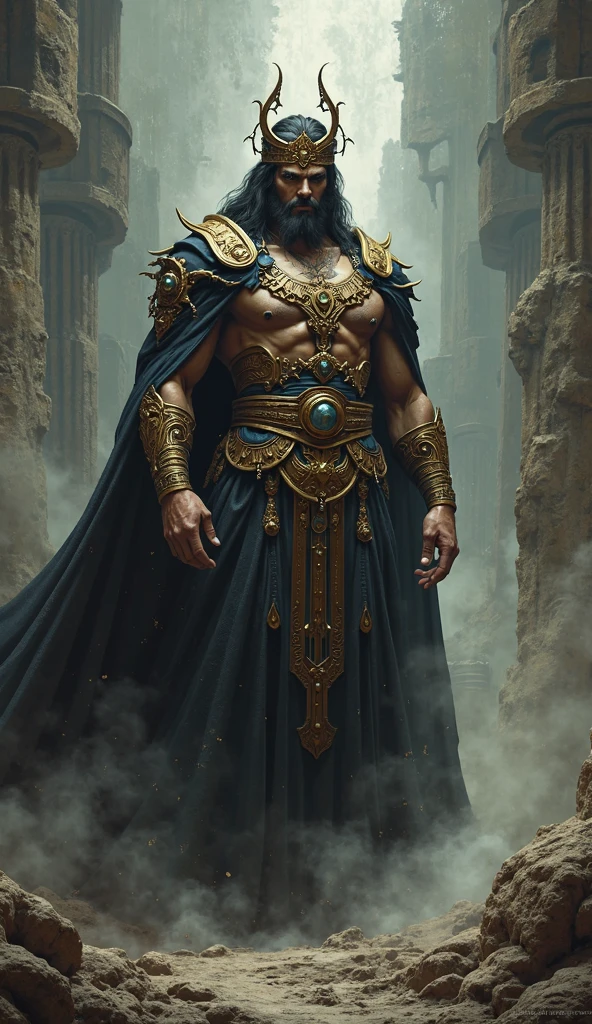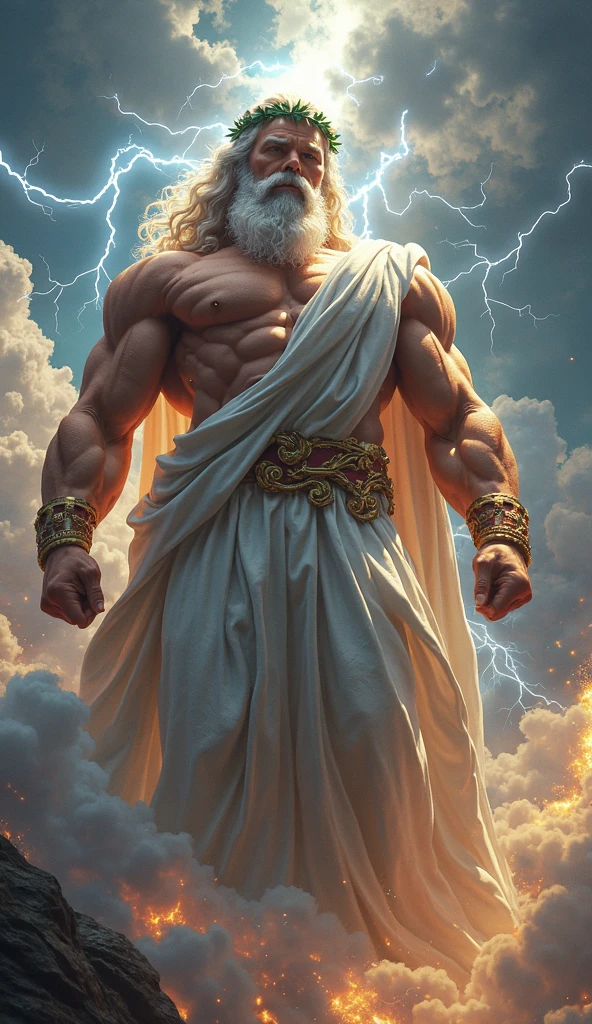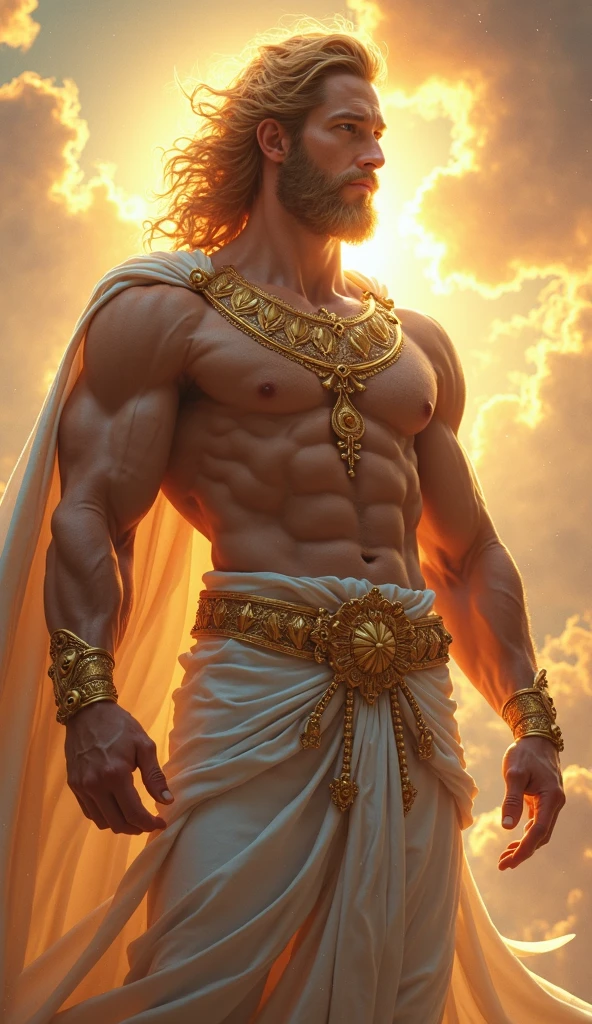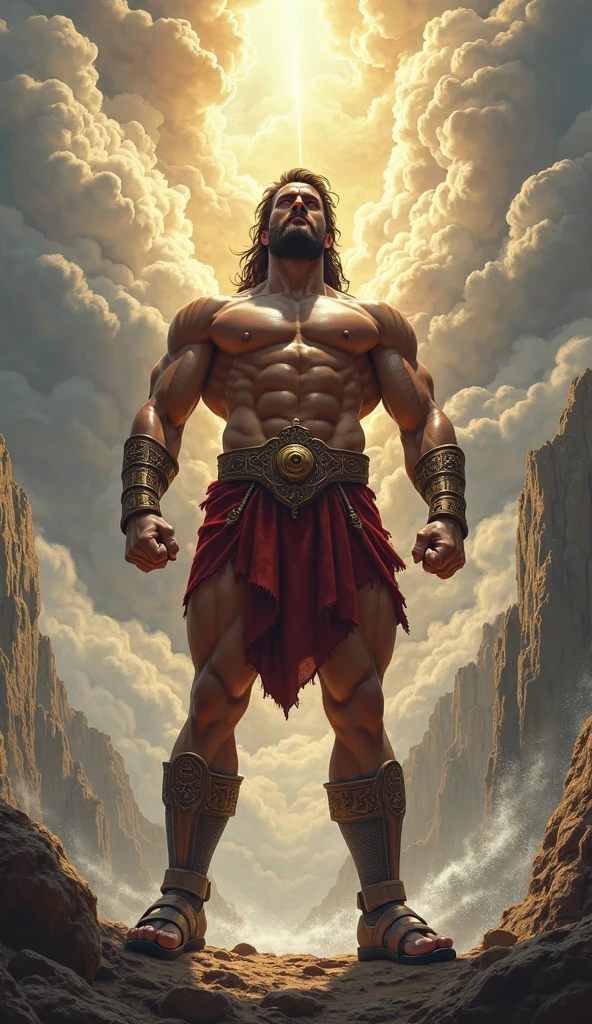Poseidon: How the Greek God of the Sea Got His Start
By Eduardo Gryn, Historian & Mythology BuffBaby God Blues: Poseidon’s Wild Early Years
Let’s rewind the clock to where it all began. In the world of Greek mythology, family drama wasn’t just common—it was cosmic. Poseidon, the future ruler of the oceans, entered the scene as the middle child of Titan heavyweights Cronus and Rhea. Picture this: Cronus, paranoid about being overthrown, gobbled up his kids like midnight snacks. Poseidon? He got swallowed whole minutes after birth. Talk about a rough start!The Ultimate Sibling Rescue Mission
Here’s where things get juicy. Baby Zeus escaped Cronus’ baby-eating habit thanks to Rhea’s sneaky rock-swap move. Fast-forward a few years, and Zeus forces Dad to puke up his divine siblings. Imagine Poseidon, fully grown but fresh out of Dad’s stomach, ready to throw down. The siblings teamed up for the Titanomachy—a ten-year godly brawl that makes Marvel movies look tame. When the dust settled, the brothers drew straws for domains. Poseidon scored the seas, Zeus grabbed the skies, and Hades got stuck with the underworld. Not a bad deal… unless you’re scared of water.Trident Tales and Horse Hustle
You can’t miss Poseidon in ancient art—he’s the buff dude with the killer trident. Those three prongs weren’t just for show. The Cyclopes made this bad boy during the Titanomachy, and it became his ultimate power symbol. Want to start a tsunami? Check. Calm a storm? Done. But here’s a fun fact: Poseidon wasn’t just Mr. Ocean. Dude invented horses! Legend says he whipped up the first stallion from sea foam to impress some goddess. Ancient Greeks totally bought it—horses became his sacred mascots overnight.Big Fish in a Small Pantheon: Poseidon’s Cosmic Gig
Okay, so Poseidon ruled the waves—but his job description was way wilder than just beach patrol. The Greeks called him the “Earth-Shaker” because when he got cranky, the ground literally trembled. His mood swings explained earthquakes better than any science back then. His underwater pad? The Aegean Sea, complete with a coral palace and a mermaid entourage. But this god wasn’t about to stay wet all day—he meddled in mortal affairs like it was his part-time job.Godly Feuds and Petty Squabbles
Remember that time Poseidon tried to one-up Athena for Athens’ favor? Classic sibling rivalry. He stabbed his trident into the Acropolis, creating a saltwater spring. Athena countered with an olive tree—the ancient equivalent of bringing avocado toast to a potluck. The Athenians picked her gift, and Poseidon threw a divine tantrum, flooding the whole Attic Plain. This wasn’t a one-off either—he beefed with half the pantheon over cities, temples, you name it. The guy had serious FOMO about being worshipped.Beach Parties and Sacrifices
Coastal towns loved throwing ragers for Poseidon. The Isthmian Games near Corinth were basically the Super Bowl of their day, with chariot races and wrestling matches. Sailors would haul butt to the Temple of Poseidon at Cape Sounion to beg for smooth sailing—though if they forgot their offerings, things got messy fast. Rituals usually involved sacrificing bulls or horses, which kinda makes you wonder… did they just barbecue on the beach and call it worship?Before He Was Cool: Poseidon’s Pre-Olympian Days
Here’s the kicker—Poseidon wasn’t always a sea god. Ancient Mycenaean tablets from 1500 BCE call him “Po-se-da-o,” an earthquake deity who controlled fresh water. Some scholars think he started as an underworld figure before getting rebranded as Ocean’s CEO. In landlocked Arcadia, farmers prayed to him for rain, while Cretans blamed him for fathering the Minotaur. Talk about an identity crisis!Regional Remixes and Godly Mashups
Every Greek city-state put their own spin on Poseidon. Thessalians worshipped him as a horse-whisperer, Athenians as a salty rival, and sailors as their terrifying boss. When Romans co-opted him as Neptune, they scrubbed most of his horse connections—probably because their navy needed a mascot. This chameleon-like rep shows how flexible myths were before Wikipedia standardized them.Trivia Time: Poseidon Edition
- Dude’s name might mean “Husband of Earth”—awkward for a sea god!
- Plato claimed Poseidon’s son founded Atlantis. Yes, THAT Atlantis.
- His sacred animals included dolphins… and also bulls. Pick a lane, man!
Poseidon’s Entourage: Gods, Monsters, and the Art of Divine Drama
Family Feuds and Oceanic Hookups
Let’s get one thing straight—Poseidon wasn’t exactly winning “Father of the Year” awards. This guy had more kids than a reality TV star, and his love life? Let’s just say Zeus wasn’t the only Olympian with a wandering eye. Poseidon’s main squeeze was Amphitrite, a sea nymph he basically strong-armed into marriage after she hid from him in the Atlantic. Together, they spawned Triton, the mermaid-esque herald of the sea. But ol’ Poseidon couldn’t resist side quests. He fathered giants, horses, and even the winged horse Pegasus after hooking up with Medusa (pre-snake-hair, thankfully).Olympian Politics 101
In the divine office politics of Mount Olympus, Poseidon was the middle manager who thought he deserved the corner office. He constantly butted heads with Zeus over territory—like that time he tried to overthrow him (spoiler: it failed). But he also teamed up with his bro against common enemies, like when they chained Hera to a magical throne for talking smack. His relationship with Athena stayed frosty after the Athens debacle, but he surprisingly got along with Demeter. Rumor has it they invented horses together during a… *ahem*… “collaboration.”Cosmic Real Estate: Poseidon’s Domain
The ancient Greeks saw the world as a giant divine pie chart. While Zeus got the sky and Hades the underworld, Poseidon’s slice was all saltwater, earthquakes, and horses. But here’s the kicker—his power didn’t stop at the beach. As the “Earth-Shaker,” he could split continents or create springs with a trident slam. Sailors knew not to tick him off; one bad offering and he’d slap their ship with a kraken. Even landlocked cities feared him—if he got bored, he’d dry up rivers or shake the ground like a snow globe.God vs. Nature: Who’s Really in Charge?
Before science explained plate tectonics, Greeks blamed every quake on Poseidon’s bad mood. Temples built near fault lines? Those were basically apology letters carved in marble. The god also had a weird grip on horses—some myths say he invented them to win over cities, others claim he transformed into a stallion to seduce Demeter. Either way, his dual role as sea god and horse lord kept ancient Greeks equal parts confused and terrified.Poseidon’s Greatest Hits: Cultural Impact
This god wasn’t just a myth—he shaped real history. The Navy of Athens plastered his trident on their ships, and the Isthmian Games (their version of the Olympics) were thrown in his honor. Ever heard of the phrase “between Scylla and Charybdis”? Thank Poseidon’s family drama for that nautical nightmare. Even Columbus name-dropped him in journals, blaming rough seas on the god’s “displeasure.”When Gods Meet Mortals
Poseidon loved messing with humans like they were Sims characters. He helped the Greeks during the Trojan War by trashing Trojan ships (then got mad when they didn’t thank him enough). He cursed Odysseus to wander the seas for a decade because the guy stabbed his Cyclops son. But he also had soft spots—like when he saved the princess Ino by turning her into a sea goddess. Dude was the definition of chaotic neutral.Art Through the Ages: Poseidon’s Makeover
From ancient pottery to Hollywood CGI, Poseidon’s look evolved big-time. Early Greek artists drew him as a bearded dude with a fish tail, but by the Classical era, he was ripped like a Spartan gym bro. The famous Artemision Bronze statue shows him mid-trident throw, muscles popping like he’s in a godly CrossFit competition. Fast-forward to Renaissance paintings, and he’s suddenly a white-haired grandpa riding a seashell chariot. Modern takes? Think Pirates of the Caribbean meets Aquaman, complete with glowing tridents and CGI waves.Temples That’ll Make Your Jaw Drop
The Temple of Poseidon at Sounion is the Instagram hotspot of ancient Greece—white marble columns perched on cliffs overlooking the Aegean. But don’t sleep on the underwater ruins off Sicily’s coast, where divers found a sunken shrine packed with bronze tridents. Fun fact: Many Poseidon temples doubled as lighthouses. Talk about multitasking!Trivia: Poseidon’s Wildest Flexes
- He once flooded an entire country (Thessaly) because the king dissed his nymph girlfriend.
- His Roman counterpart Neptune originally had zero ocean connections—he was a freshwater god!
- The 2012 “God of War” video game made him a final boss. Zeus probably laughed his toga off.
Poseidon Unchained: Divine Powers and Mortal-Shattering Feats
God Mode Activated: Poseidon’s Divine Toolbox
If Greek gods had LinkedIn profiles, Poseidon’s skills section would crash the site. This wasn’t some beach bum deity—he packed enough power to make Zeus side-eye him daily. Let’s break down his godly resume:Ocean’s CEO: Mastering the Seven Seas
That trident wasn’t just for selfies. With a single thrust, Poseidon could whip up hurricanes, part oceans like Moses 2.0, or create entire islands. Homer’s Odyssey shows him flipping ships like pancakes when he’s peeved. But he wasn’t all destruction—sailors who kissed up to him got glassy-smooth waters and tailwinds. The guy basically invented the concept of “don’t bite the hand that feeds you.”Earth-Shaker 2.0: Tectonic Temper Tantrums
Poseidon’s nickname “Earth-Shaker” was no metaphor. When the god stomped his foot, cities crumbled. Myths say he caused the massive quake that sunk Helike in 373 BCE—an ancient “eff around and find out” moment. Modern geologists low-key respect this; the Aegean region does sit on fault lines, so maybe the ancients weren’t totally winging it.Horse Whisperer: From Sea Foam to Stampedes
Here’s the wildest flex: Poseidon allegedly created the first horse by stabbing his trident into a rock (because why not?). The beast sprang from sea foam, ready to chariot. He later shape-shifted into a stallion to chase Demeter, resulting in the birth of Arion, a horse that could outrun the wind. Ancient Greeks saw horses as living earthquakes—powerful, untamable, and 100% Poseidon’s vibe.Legendary Feats: When Poseidon Went Full Flex
Poseidon didn’t just sit on his underwater throne—he threw down in ways that’d make TikTok influencers jealous. Here are his greatest hits:The Trojan War: Divine Sabotage Extraordinaire
During the Trojan War, Poseidon switched teams more than a fantasy football manager. He helped the Greeks build their infamous wooden horse (yes, that one), then later tried drowning them on their way home because they forgot to thank him. Classic petty god move. He also sent sea monsters to harass Trojan survivors—because winning wasn’t enough; he had to style on them too.Odysseus’ 10-Year Timeout
When Odysseus blinded Poseidon’s Cyclops son Polyphemus, the god went full “how dare you” mom energy. He cursed the hero to wander the Mediterranean for a decade, facing killer storms, ship-eating whirlpools, and a six-headed sea monster. Homer’s Odyssey basically became ancient Grecian trauma porn, thanks to Poseidon’s grudge.Atlantis: The OG Flex and Flop
Plato’s Timaeus claims Poseidon fathered ten sons with a mortal woman, then built Atlantis as their playground. The island had concentric water rings (trident-themed, obviously) and bull sacrifices galore. But when the Atlanteans got too cocky, Poseidon zapped their utopia into the ocean. Dude invented the “build and destroy” trope millennia before Minecraft.Even Gods Have Bad Days: Poseidon’s Weaknesses
For all his power, Poseidon wasn’t invincible. Here’s where the sea god’s armor cracked:Zeus’ Thunderous Authority
Big bro Zeus kept Poseidon on a short leash. When Poseidon flooded the Trojan Plain against Zeus’ orders, the sky god shut him down with a lightning bolt threat. Their relationship was all “family first” until it wasn’t—Olympic drama at its finest.Worship or Bust
Poseidon’s power depended on mortal worship like influencers need followers. Cities that skimped on sacrifices? He’d dry up their ports or send plagues of jellyfish. The Temple of Poseidon at Sounion wasn’t just pretty—it was a divine protection racket.That Infamous Temper
Poseidon’s rage was his Achilles’ heel. When Queen Cassiopeia dissed his sea nymphs, he sent the Kraken to eat her daughter Andromeda. Overkill much? His tantrums often backfired, like when flooding Athens only made Athena more popular.Trivia: Poseidon’s Most Badass Moments
- He once fought Apollo over Delphi and lost—but still made the Greeks build him a temple there out of spite.
- His Roman counterpart Neptune got downgraded to a horse-racing patron. Ouch.
- Modern oceanographers named the “Poseidon” missile after him. Because nothing says “god of the sea” like nuclear subs.
You can download the Greek Gods book here: DOWNLOAD



